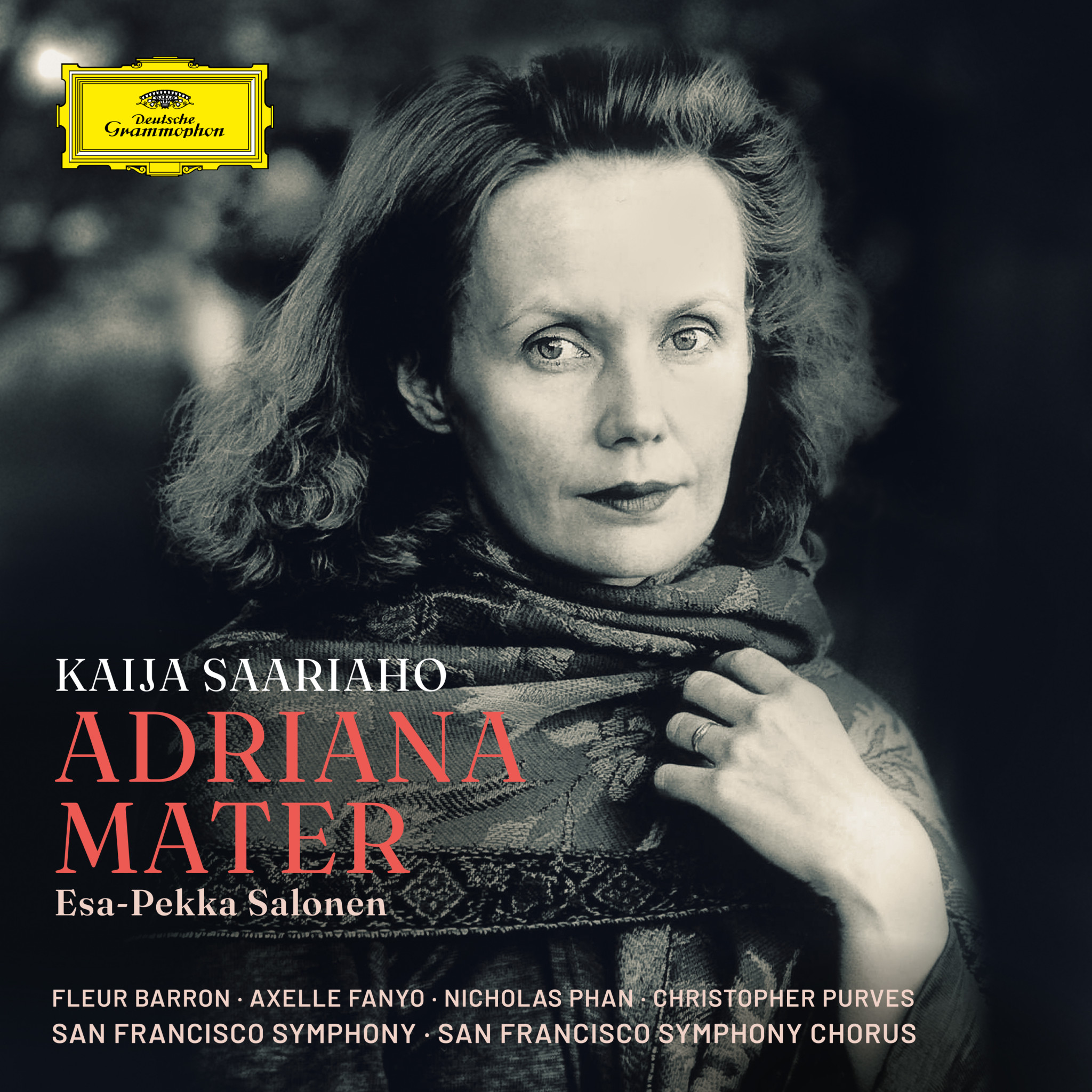Deutsche Grammophon announces the world premiere recording of Kaija Saariaho’s Adriana Mater, performed by the San Francisco Symphony and conducted by Saariaho’s lifelong friend Esa-Pekka Salonen.
The composer’s second opera—and second collaboration with Lebanese-born French writer Amin Maalouf—Adriana Mater is an intensely moving work exploring the relationship between a mother and her son in a war-torn country as they navigate the violence that defines their past and present, and threatens to claim their future.
This recording captures a June 2023 performance of a staged production directed by Peter Sellars, delivered mere days after the composer’s passing; mezzo-soprano Fleur Barron sings the title role, in a cast that also includes Axelle Fanyo (Refka), Nicholas Phan (Yonas), and Christopher Purves (Tsargo) alongside the San Francisco Symphony Chorus. Adriana Mater is available digitally worldwide; a physical edition will follow in 2025.
In an unnamed country on the brink of war, a young woman, Adriana, spurns the aggressive drunkard Tsargo with the support of her sister Refka. Some time later, Tsargo—now a soldier—returns and threatens Adriana at gunpoint; after an unseen assault, she is revealed to be pregnant with his child. Despite Refka’s efforts to convince her otherwise, Adriana chooses to continue with the pregnancy; both are anxious about the kind of man the child may grow up to be. Seventeen years later, Adriana’s son Yonas uncovers the truth of his conception. Furious at this discovery, he sets off to confront and kill Tsargo but is overcome by pity when he discovers that the man is now blind and flees the scene. In the aftermath, he confesses to Adriana that he was unable to avenge her and begs for her forgiveness. But in place of weakness, Adriana sees salvation: Yonas is truly her son.
Both the premise of the opera and its musical material find inspiration in Saariaho’s and Maalouf’s respective life experiences: Saariaho’s motherhood, and Maalouf’s firsthand experience of the Lebanese Civil War. “As a starting point for our second collaboration, I told Amin Maalouf about the powerful experience I’d had when I was pregnant with my first child, the sensation of two hearts beating in my body,” Saariaho wrote in her composer’s note. “Amin contributed a subject that was also essential to him on a personal level: war and violence. As the idea of two hearts and their rhythmic polyphony was one of the first thoughts we had about the opera, it also naturally became a musically omnipresent element. The different rhythms and tempos of the characters were always present in my compositional work: I had sketched them out in advance and used them as matrices for the music.”

